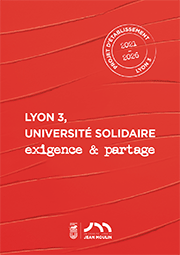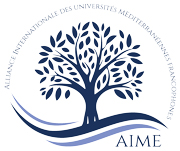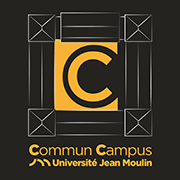AccueilRechercheProgrammes et productions scientifiquesThèsesThèses soutenuesThèses soutenues - 2006-2021Thèses soutenues - 2011
-
Partager cette page
- Recherche,
DURIN Guillaume
L'énonciation du discours intellectuel de guerre juste aux Etats-Unis de 1971 à 2005
Thèse en Sciences politiques soutenue le 19 décembre 2011
For more than sixty years, the debate about the US foreign policy has referred to the “just war” theory. It has been based on conceptions and paradigms connected to that traditional notion of “just war” and invigorated by philosophers, political scientists or theologians including Michael Walzer, Jean B. Elshtain, James T. Johnson and George Weigel. The latter have different backgrounds and made dissimilar intellectual choices but they have common points, in particular a common aim to confront theorists that are not prone to link war and ethics. The “just war” thinkers interacts with several referred authors, with followers and distractors, including Reinhold Niebuhr, Paul Ramsey, William O’Brien, John Courtney Murray but also Hans Morgenthau and more recently, Richard Rorty, Noam Chomsky, Howard Zinn, Edward Sa?d, John Langan, or Bryan Hehir. The socio-discursive community durability shows the persistence of an intellectual involvement characterized by the will to promote justice and ethical principles and to make the dichotomy between warmongering and irenicism, between cynicism and messianism, to defend the “moral reality of mar” belonging to an advanced form of “moral realism”. The dynamics at work turn out to be oriented by the seeking of a “just” combination between ethics and politics but also by positioning and occupancy logics within highly controversial deliberative areas. Therefore, the interpretation of the contemporary “just war” intellectual discourse requests the use of a socio-discursive and conflictualist perspective, issued from Dominique Maingueneau’s pragmatic theory and from Randall Collins’ sociology of intellectual conflicts. Lastly, the debates about a “just war” theory highlights interpretative interest of inter- and counter- discourse notions but also of socio-discursive coalitions and communities.
Key words : Just War, United-States, Ethics, Political Theory, Socio-discursive Communities, Intellectual Sociology, Discourse Analysis, Interactionism, Conflictualism.
Directeur de thèse : Jean-Paul JOUBERT
Membres du jury :
Klaus Gerd GIESEN, Professeur, Université d'Auvergne
Jean-Paul JOUBERT, Professeur, Université Jean Moulin Lyon 3
Jean LECA, Professeur émérite, Institut d'Etudes Politiques de Paris
Nicolas OFFENSTADT, Ma?tre de conférences à l'université Panthéon-Sorbonne Paris 1
Brigitte VASSORT-ROUSSET, Professeur, Université Jean Moulin Lyon 3
Président du jury : Jean LECA
Mention : Très honorable avec les félicitations du jury
Equipe d'accueil : CLESID







